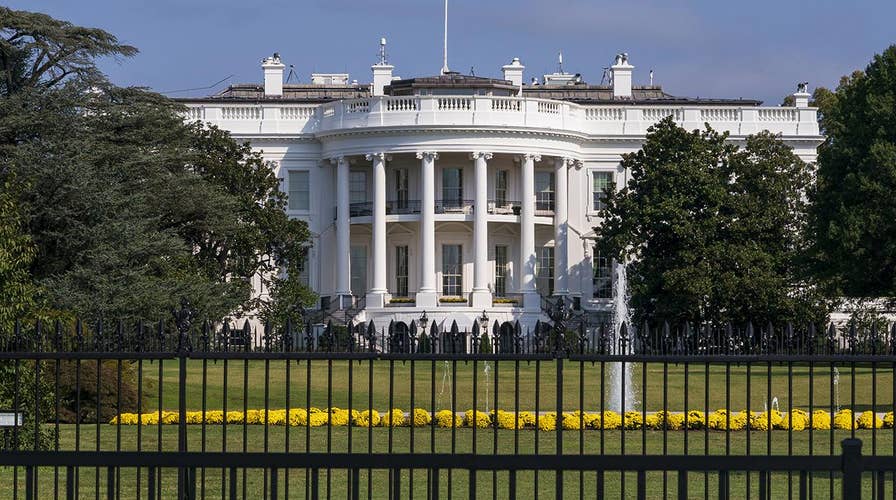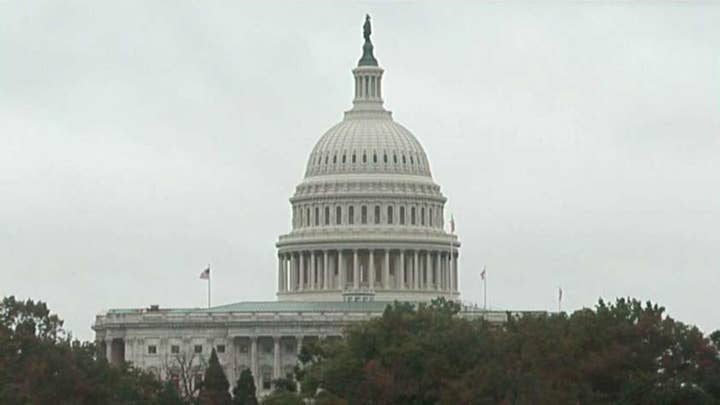Republican lawmakers meet with President Trump following impeachment resolution vote
Pennsylvania Republican Rep. Guy Reschenthaler says he cannot disclose what the meeting with Trump was about. Reschenthaler says he is proud that every House Republican voted no on the impeachment resolution.
The executive branch and the House of Representatives squared off in federal court Thursday in two separate cases concerning whether former White House officials can be forced to testify before congressional committees amid the Trump impeachment inquiry.
Meghan Barbaro, an attorney for the Democrats on the House Judiciary Committee, argued in court that the committee needs testimony from former White House Counsel Don McGahn because he was witness to some of the key events in Special Counsel Robert Mueller’s report.
Those events, according to Barbaro, include President Trump "trying to shut down the FBI Russia investigation," as well as the firing of former FBI Director James Comey and the pressuring of former Attorney General Sessions not recuse himself from the Russia investigation.
"This is a deprivation of info which the committee and the House are entitled to," Barbaro said. "The committee wants him as a live witness to test his credibility and judge for themselves, which is what the constitution provides, especially during an impeachment investigation."
Department of Justice lawyer James Burnham, representing the White House, countered: "I'm making the argument that the Constitution does not allow this - does not allow branches of government to sue each other."
Burnham also accused lawmakers of lacking the political fortitude to solve the problem on their own.
"They don't have the political will to do it. If the House doesn't care enough to use the political powers it has, it just runs to the court," he said.
U.S. District Judge Ketanji Brown Jackson challenged Burnham’s assertion that she may not have any jurisdiction over a case like this.
Jackson asked how the House committee could execute its oversight without the ability to get the information they need. She also seemed to swat away the White House argument that there was no real precedent for something like this.
"Just because it's never happened before, that's not enough," said Jackson.
It's unclear when Jackson will make a ruling on the merits of the case and the path forward.
EX-WHITE HOUSE OFFICIAL ASKS COURT WHETHER HE SHOULD TESTIFY IN HOUSE IMPEACHMENT INQUIRY
Meanwhile, in a separate case argued just down the hall, attorneys representing Trump, the House of Representatives and former White House deputy national security adviser Charles Kupperman fought it out as Democrats on the Hill push for his testimony in the impeachment inquiry.
Charles Cooper, representing Kupperman, told U.S. District Judge Richard Leon that his client is "in a classic catch-22 ... We have no dog in this fight."
Cooper explained that Kupperman has received subpoenas from House committees demanding he testify, but has also received instructions not to testify from the White House under a claim of "Absolute testimonial immunity."
CLICK HERE TO GET THE FOX NEWS APP
Cooper urged Leon to make a decision as to what Kupperman should do. "Dr. Kupperman is indifferent to the outcome. He just wants to uphold his oath to the Constitution," Cooper said.
Leon set what he called an "aggressive" schedule to resolve the case, with briefs due from all sides in the coming weeks and oral arguments tentatively set to begin on Dec. 10th.
Department of Justice lawyer Elizabeth Shapiro asked for more time to file briefs but Leon was unsympathetic.
"When it's a matter of this consequence to the country, you roll up your sleeves and get the job done," Leon said. "Vacations and other distractions take second place ... The government has resources, if you can't get it done, your colleagues can."






